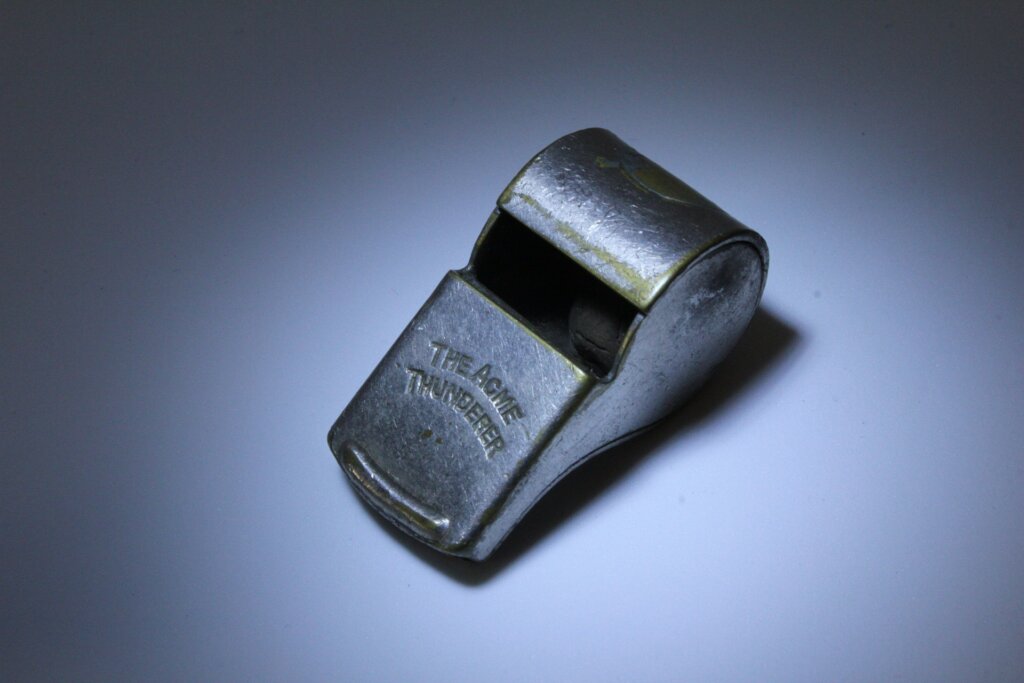Qui tam lawsuits, also known as whistleblower lawsuits, are a powerful tool in the fight against fraud and corruption. These lawsuits allow individuals to bring legal action against individuals or companies that have defrauded the government, and they can help to expose and prevent fraudulent activity that could harm the government and taxpayers.
What makes qui tam lawsuits different from other lawsuits is that, under the False Claims Act, private individuals are permitted to sue on behalf of the federal or state governments to recover money that was fraudulently obtained by a person or entity.
This article will explain the concept of qui tam lawsuits and provide an overview of the process for bringing a qui tam case. We also discuss the rewards and protections available to qui tam whistleblowers.
At Jeff Newman Law, we specialize in representing whistleblowers in qui tam cases, and we have a long track record of recovering multi-million dollar settlements on behalf of our whistleblower clients.
Get in touch today for a free confidential assessment of whether you might have a potential qui tam lawsuit that could result in a whistleblower award:
- Contact us for a free confidential consultation
- Call us at (617) 823-3217
What is a qui tam whistleblower?
The federal False Claims Act (or FCA), which was originally created during the Civil War to combat fraud by contractors who were selling faulty goods to the Union Army, authorizes qui tam actions. Many states have also adopted their versions of the FCA statute.
A person who files a qui tam action is called a qui tam whistleblower or qui tam relator. They must have knowledge of fraudulent activity to bring a lawsuit on behalf of the government in order to expose and address the alleged wrongdoing.
Qui tam whistleblowers play a vital role in the fight against fraud and corruption. If you have firsthand knowledge of the fraudulent activity, you can provide valuable evidence and testimony that can help the government prosecute the case.
In return for their help, qui tam whistleblowers are entitled to a portion of the recovery if the case is successful. This percentage is usually between 15-30%, and is determined by the government based on the whistleblower’s contribution to the case.
Qui tam lawsuits can involve a wide range of fraudulent activity, including healthcare and Medicare fraud, defense contract fraud, customs fraud, research grant fraud, and more. These lawsuits serve as a deterrent for individuals and companies that might be tempted to defraud the government, and they also help to recover taxpayer funds that have been lost to fraud.
If you are a potential qui tam whistleblower and you have knowledge of fraudulent activity, it is important to speak with an experienced qui tam attorney. An attorney can help you understand your rights as a whistleblower and guide you through the process of bringing a qui tam lawsuit.
What is a qui tam relator?
A qui tam relator is the individual who initiates the lawsuit and serves as the plaintiff in the case. In order to bring a qui tam lawsuit, qui tam relators must have direct, firsthand knowledge of the fraud.
This means that the relator must have evidence, such as documents or testimony, that supports their allegations. The lawsuit is filed under seal, meaning it is kept confidential while the government investigates the allegations.
Who can become a whistleblower and file a qui tam lawsuit?

Under the qui tam provisions in the False Claims Act, any person who has information about fraud against the government may file a qui tam lawsuit.
Whistleblowers are often employees of companies that commit fraud, but this is not a requirement. A whistleblower may be any person who has information about fraudulent activity.
Specifically, a whistleblower may file a qui tam lawsuit when he or she has information that an individual or entity has, among other things:
- Knowingly presented a false or fraudulent claim for approval or payment,
- Knowingly made, used, or caused to be used or made a false record or statement related to a false or fraudulent claim for payment, or
- Knowingly concealed or knowingly and improperly avoided or decreased an obligation to transmit or pay property or money to the government.
To be eligible to bring a qui tam case, you must have direct, firsthand knowledge of the fraud.
You also must be the first to file a lawsuit exposing the fraudulent activity, as the qui tam statutes include a “first to file” rule that bars subsequent lawsuits based on the same set of facts.
Tips for potential qui tam whistleblowers
If you have knowledge of fraud against the government and are considering blowing the whistle on the fraudulent activity, it is important to take steps to protect your rights and to understand the process of bringing a qui tam lawsuit. Here are some tips.
Speak with an experienced qui tam attorney
If you have knowledge of fraud committed against the government, it is important to speak with an experienced whistleblower attorney who can help you understand your rights and guide you through the process of bringing a qui tam lawsuit. An attorney can help you evaluate the strength of your case and advise you on the best course of action.
Protect the confidentiality of your information
As a whistleblower, it is important to take steps to maintain the confidentiality of your information. This can help protect you from retaliation, ensure that your allegations are thoroughly investigated, and ensure that you meet the “first to file” requirements of the FCA.
Understand that filing a qui tam lawsuit can be a long and complex process
It is important to understand that filing a qui tam lawsuit can be a lengthy and complex process. The process of bringing a case can take several years, and it may be necessary to navigate complex legal procedures and regulations.
That said, it is important to remember that filing a qui tam lawsuit is an important way to hold individuals and companies accountable for defrauding the government and to recover taxpayer funds that have been lost to fraud.
How Qui Tam Lawsuits Work
Qui tam suits are a unique and powerful tool in the fight against fraud. If you are considering filing a qui tam lawsuit, it is important to understand the steps involved in the process.
Here is a step-by-step guide to bringing qui tam cases:
- Gather evidence: The first requirement for filing a qui tam suit is that the individual bringing the lawsuit, known as the “qui tam relator,” must have direct, firsthand knowledge of the fraud. This means that the relator must have evidence of the fraud, such as documents or testimony, that supports their allegations.
- File the lawsuit: Once the relator has gathered the necessary evidence, they can file a lawsuit in court.
- The lawsuit is sealed: After the lawsuit is filed, it is “sealed,” meaning that it is kept confidential while the government investigates the allegations. During this time, the relator is not allowed to discuss the case with anyone outside of their attorney and the government.
- The government decides to intervene or not: After the government has had a chance to review the case, it will decide whether to “intervene” in the lawsuit. If the government decides to intervene, it will take over the lawsuit and work with the relator to prosecute the case. If the government declines to intervene, the relator has the option to continue with the lawsuit on their own.
What are the rewards for qui tam whistleblowers?

Qui tam whistleblowers are entitled to a portion of the recovery if the case is successful and the defendant is found to have defrauded the government.
For False Claims Act cases, this percentage is usually between 15-30%, and is determined by the government based on your contribution to the case. For example, if the recovery in the case is $1 million and the relator is awarded 20% of the recovery, the relator would be entitled to $200,000.
In addition to the financial rewards, there are other considerations to becoming a qui tam whistleblower. For many qui tam whistleblowers, the moral aspect revealing and stopping the fraud is also a significant motivator.
By bringing a qui tam lawsuit, you are playing an important role in the fight against fraud and corruption. You are helping to expose and prevent fraudulent activity that could harm the government and taxpayers. You are also serving as an example to others who may have knowledge of fraudulent activity, and you are encouraging them to come forward and blow the whistle.
Protection for qui tam whistleblowers under the False Claims Act
As a qui tam whistleblower, you may be concerned about retaliation or other negative consequences for exposing fraudulent activity. It is important to know that the False Claims Act includes provisions to protect qui tam whistleblowers from retaliation.
Under the FCA, it is illegal for an employer to take the following actions against an employee in the terms and conditions of employment because the employee assisted in a qui tam lawsuit or because the employee provided information to the government regarding a potential violation of the FCA:
- Discharge
- Demote
- Suspend
- Threaten
- Harass
- Discriminate
It is important to note that qui tam lawsuits are filed under seal, meaning that they are kept confidential while the government investigates the allegations. This can help protect qui tam whistleblowers from retaliation and ensure that the fraudulent activity is thoroughly investigated.
If you are a qui tam whistleblower and you have experienced retaliation as a result of your actions, you may be entitled to relief under the FCA.
About Jeff Newman Law
At Jeff Newman Law, we specialize in representing whistleblowers in qui tam cases, and we have a long track record of recovering multi-million dollar settlements on behalf of our whistleblower clients.
Get in touch today for a free confidential assessment of whether you might have a potential qui tam lawsuit that could result in a whistleblower award:
- Contact us for a free confidential consultation
- Call us at (617) 823-3217
